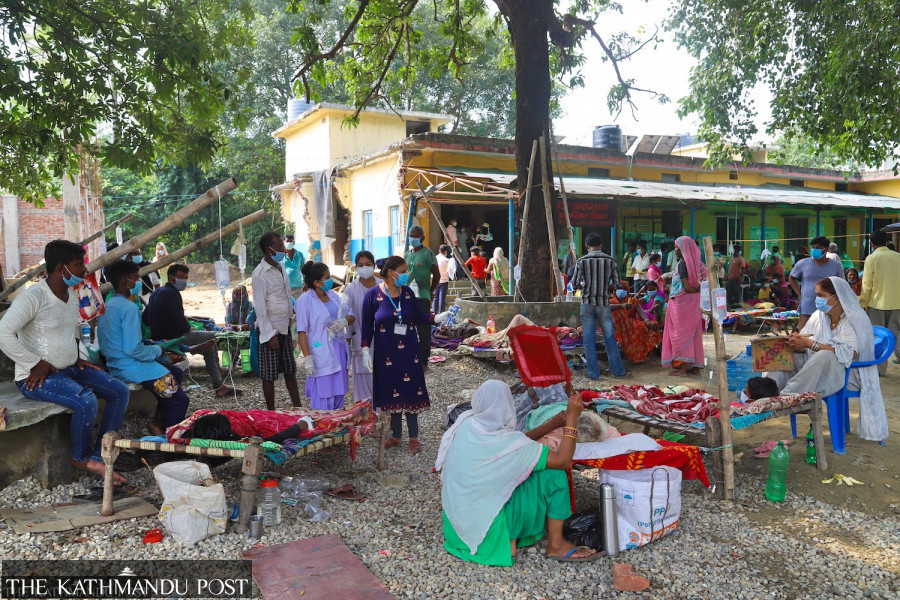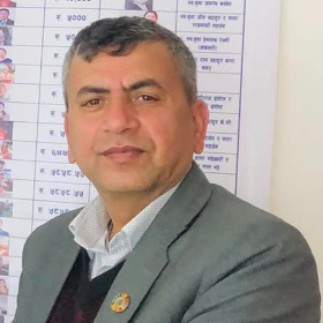Columns
Towards an inclusive health system
We need to create people-centred health systems by fostering dialogue and effective community engagement.
Jhabindra Bhandari
Health system governance is a newly developed concept referring to the rules and norms that shape roles, responsibilities, incentives and interactions in the health sector. The Constitution of Nepal 2015 has called basic health care a fundamental right. The National Health Policy 2019 and the Nepal Health Sector Strategy 2023-2030 have been instrumental in developing and expanding a health system based on social justice and good governance. The strategic interventions aim to strengthen the social health protection system, integrating the most disadvantaged and marginalised communities.
Local governments play a significant role in ensuring an inclusive health system through a broad range of legal, policy, planning and monitoring instruments. Considering the contributions from public and private service providers, including poor and marginalised communities in the health system, is crucial for achieving Universal Health Coverage (UHC) and health-related Sustainable Development Goals (SDGs).
Earlier, there was no clear focus on the healthcare provision of disadvantaged and marginalised populations. Local governments had limited political autonomy to prioritise their resources in the health sector. After implementing federalism, these governments are more accountable and responsible towards addressing basic human rights, including health services. The Local Government Operations Act 2017 provides ample opportunity to prioritise and address the needs of marginalised and disadvantaged people.
Addressing inclusion
There is a growing acknowledgement of the need for an inclusive health system governance to improve healthcare access for those whose health needs are unmet. The ever-increasing healthcare needs of adolescents, youth, sexual and gender minorities, people with disabilities, migrants and indigenous communities shouldn’t be compromised. We must explore how the interactions and relationships between people, health institutions and local governments are positioned in the local context. It is also fascinating to understand how these relationships impact the accessibility of health services for poor and marginalised communities, in particular.
Effective representation and engagement in the health system are crucial as we experience noble progress in local governments with inclusive policies that empower marginalised communities, providing easy access to healthcare services. Moreover, the provision of free health care, outreach clinics, health campaigns and financial incentives have been invaluable in improving their access to health care services in remote areas where the service coverage is still low.
From an anthropological perspective, understanding the existing social, cultural, economic, geographic and political barriers in the communities is vital to realistically address the issues of inclusion, diversity and equity in health. The prevailing indigenous health practices and cultural norms also influence people’s motivation to seek care in health facilities.
Inclusive health system governance demands adequate institutional arrangements and capacities. However, functional regulatory measures, effective community participation and engagement in decision-making are more likely to enhance transparency, accountability and responsiveness to public expectations. There is a critical need to identify and address the governance bottlenecks by developing evidence-based policy options for strengthening health system governance.
Concerted efforts are required to strengthen existing oversight and management committees for effective community engagement and local resource mobilisation for health care services. Moreover, orientation on their role and responsibilities is crucial to ensure health equity and social justice. It is necessary to build the institutional capacity of local governments in preparedness and health emergency response during disaster and health emergencies such as the Covid-19 pandemic.
People-centric health systems
Nepal has made remarkable progress in reducing overall morbidity and mortality among mothers and children under five by enhancing access to maternal, children, newborn and reproductive health services. However, there is a need to ensure equitable delivery of quality health services for the most disadvantaged and marginalised communities at the local level. The persistent social, cultural, economic and geographic barriers to health care must be addressed in local health planning. Effective use of health and population data is crucial to identify the gaps and improve the performance of the health interventions at large.
Unfortunately, we continue to face several challenges to ensure adequate trained human resources, good health infrastructure, robust monitoring and evaluation systems, uninterrupted supplies of medicines and other logistics in the rural health facilities. It is time to enhance responsive and people-centred health systems by fostering dialogue and effective community engagement. This mechanism not only empowers local communities but also helps hold local governments accountable for their political commitments.
Additionally, health literacy is crucial for empowering local people to enhance informed decision-making. This enables their engagement in actions regarding collective health promotion to address its social determinants. Local governments' roles and responsibilities to deliver public health services more effectively are indispensable in the federal context. Finally, the key to ensuring health for all lies in political commitment and social accountability.




 20.9°C Kathmandu
20.9°C Kathmandu















